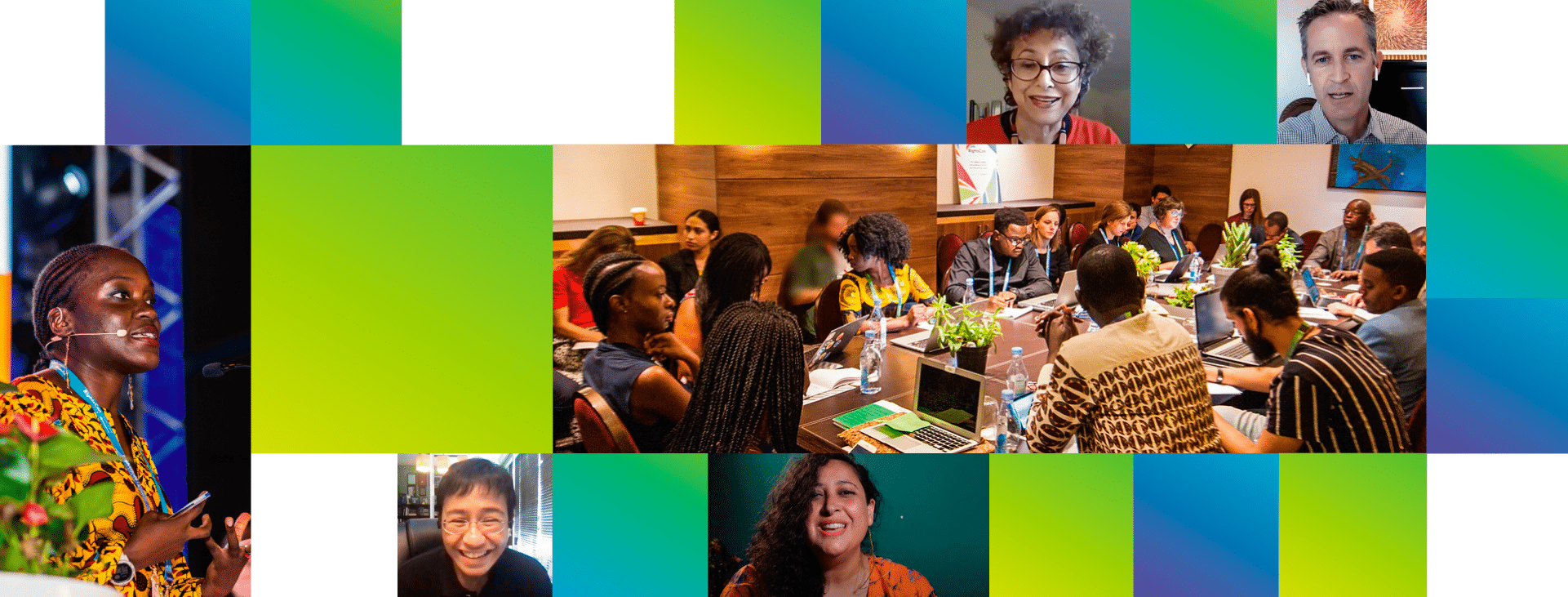This blog post was updated in May 2024 to reflect our hybrid model for RightsCon 2025.
The journey to RightsCon (February 2025) is on!
If you plan to submit a session proposal for consideration, but aren’t sure where to start, take a look at our Guide to a Successful Proposal, and read on for tips and guidance on session design and facilitation, with best practices adapted for online, in-person, and hybrid environments.
This blog post is a part of our series of resources on participatory session design, following previous ones on online session design and future scenarios planning. As always, we welcome ideas and input to help inform our program building, and you can reach us with comments or questions at [email protected].
Online, in-person, or hybrid: which is best?
Building on the successes and learnings from RightsCon Costa Rica (2023), our upcoming hybrid summit will follow a similar model, with a combination of in-person, online, and hybrid programming during the in-person summit hours (9:00 a.m. - 5:00 p.m. local time) and online programming outside summit hours. Based on budgetary and team capacity constraints this year, and the reduced overlap with the Asia Pacific timezones, we have decided to reduce the amount of sessions that include hybrid elements. For the roundtable and private meeting formats only, there will be a select number of sessions that will be elevated to support a two-way exc
This post is the second in a series of resources on participatory session design. You can read the first instalment here.
In order to build a world where our rights are respected and protected in both online and offline spaces, we need to use every tool and tactic at our disposal to foresee the challenges that lie ahead and disrupt dangerous digital trends. Change requires clear-eyed, active optimism and radical imagination: we need light to see the path in front of us.
The 11th edition of RightsCon (June 6-10, 2022), hosted online and across every time zone, will chart the course for the next decade and the Call for Proposals, now open until January 13, 2022, is an opportunity to put all possible futures on the agenda.
The use of future scenarios isn’t new to RightsCon. Our program has supported sessions on strategic futurism and creativity, speculative design in public service delivery, climate resilience for companies and communities, art that frames the present as the pa
This is the third and final installment in our 2021 Call for Proposals blog series. You can find the earlier installments here and here, and read our Guide to a Successful Proposal for more information.
The deadline to participate in the RightsCon 2021 Call for Proposals has been extended until January 26, 2021, which means the clock’s ticking to devise and design a proposal that will stand out.
Participation is the foundation of an effective session. At RightsCon, we believe that understanding and leveraging the expertise in the room leads to deeper discussion, richer learning experiences, and outcomes that serve both you and our community. If you feel stuck on structure or uncertain about the best way to engage participants, this blog will share the basics of designing a session that gets everyone involved and invested in your goal.
Our goal, as conveners, is to offer support, training, and tools for our session organizers to succeed. Hosting a session at RightsCon does take some work, but it should also be a fun and positive experience. This blog is only a resource, not a requirement. If you want to try a different approach, or if you have other ideas for us about creating participatory and inclusive sessions, you can always reach our team at [email protected].
Part I: Back to basics
readmore



